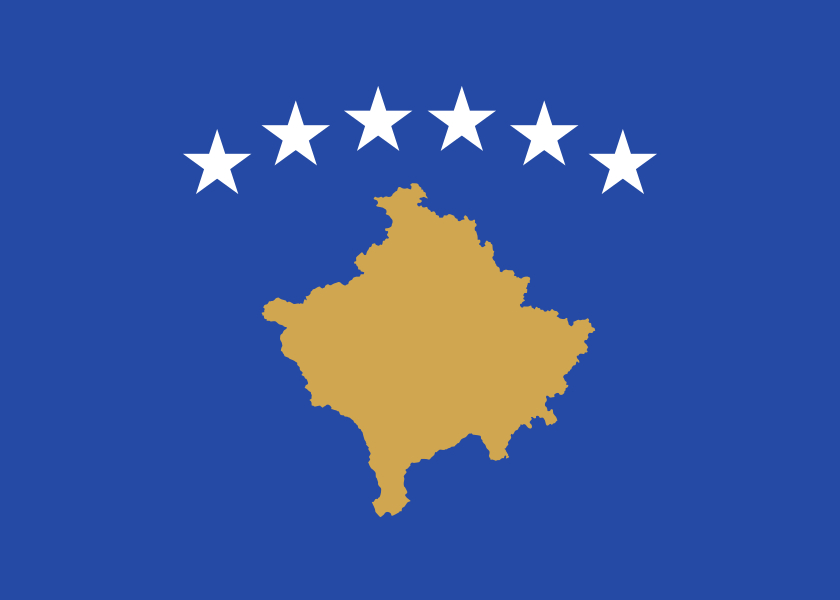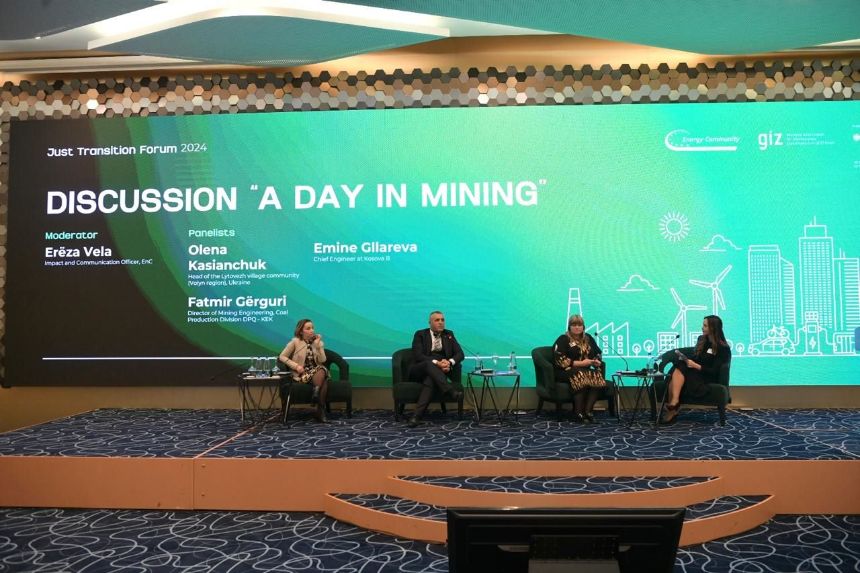The Just Transition Forum in Pristina highlights pathways for a fair energy transition in the Energy Community region
The Just Transition Forum held in Pristina today, concluded with a resounding call for coordinated efforts to ensure a fair and sustainable energy transition in the Western Balkans.
Over a hundred participants, both in person and online, gathered to discuss pathways for supporting coal workers and affected communities while addressing the region’s dangerous levels of pollution and reliance on fossil fuels. The forum emphasised the urgent need for structured governance and financing mechanisms, with an emphasis that “polluters must pay” as a key principle for funding the transition.
The day began with a video presentation featuring interviews with coal mine and power plant workers from the Obiliq/Obilić power plant, illustrating their deep connection to the industry and the challenge of moving away from fossil fuels that currently power most of Kosovo's electricity.
In his opening remarks, Artur Lorkowski, Director of the Energy Community Secretariat, highlighted the urgency of the energy transition, stating, “This transition is not just about meeting targets. It must also be inclusive and fair. Workers, communities, and industries impacted by the shift from fossil fuels to renewables must be supported and benefit from new opportunities.”
Key panels throughout the day included:
- "A Day in Mining," moderated by Erëza Vela (Impact and Communications Officer, ENCS), where workers like Fatmir Gerguri of KEK shared their experiences and discussed the role of trade unions in ensuring a fair transition.
- "The Voice of Youth on Just Transition," moderated by Marta Schulte-Fischedick (Jus transition expert, ENCS), featuring young leaders like Amina Kaja and Iva Trpeski, who discussed the role of youth in shaping the future of the region.
- "What Would You Finance for a Just Transition?" led by Monika Figaj (Climate and just transition expert, ENCS), explored financing options with contributions from David Oberhuber of GIZ and Burim Hashani from MCA.
In her closing remarks, Monika Figaj, Climate and Just Transition expert at The Energy Community Secretariat, emphasised the need for proactive planning: "CBAM is almost here, and our fossil-based infrastructure will not survive another generation. We must plan for this inevitable change, using the tools we have at our disposal such as the National Energy and Climate Plans, Long-Term Low Emission Development Strategies and the Just Transition Plans.”
Mrs. Figaj also highlighted the importance of fair and significant resourcing. “International financing alone won’t bridge the gap. Carbon pricing systems are rising globally for a reason—polluters must pay. Currently, 30,000 people in the Western Balkans die annually from air pollution, and this level of pollution cannot continue."
The Forum not only highlighted the challenges faced by the Western Balkans in its energy transition but also emphasised the importance of inclusive dialogue and collaboration among all stakeholders. By addressing the needs of workers and communities affected by the transition, the event laid the groundwork for a more sustainable and equitable energy future in the region, ultimately aligning with EU decarbonisation goals.
Organised by the Energy Community Secretariat in collaboration with the Deutsche Gesellschaft für Internationale Zusammenarbeit (GIZ) GmbH on behalf of the German Government the event aimed to facilitate regional dialogue on the principles of a Just Transition.
The Energy Community Secretariat fosters regional cooperation and helps align energy policies with EU standards, supporting the transition to a more sustainable energy market.
As part of relevant and regional technical cooperation, Deutsche Gesellschaft für Internationale Zusammenarbeit (GIZ) GmbH, on behalf of German Government, provides assistance to build capacities and advance broad-ranging multi-sectoral reforms in the fields of climate and energy under the framework of the Regional Climate Partnership between Western Balkans and Germany.
In Scope:
Just Transition Forum 2024 - Pristina, Kosovo*
Just Transition Forum 2024 in Pristina
Just Transition Forum 2024 - Pristina, Kosovo*
Just Transition Forum 2024 in Pristina
Just Transition Forum 2024 in Pristina
Just Transition Forum 2024 in Pristina
Just Transition Forum 2024 in Pristina
Just Transition Forum 2024 in Pristina
Just Transition Forum 2024 in Pristina








